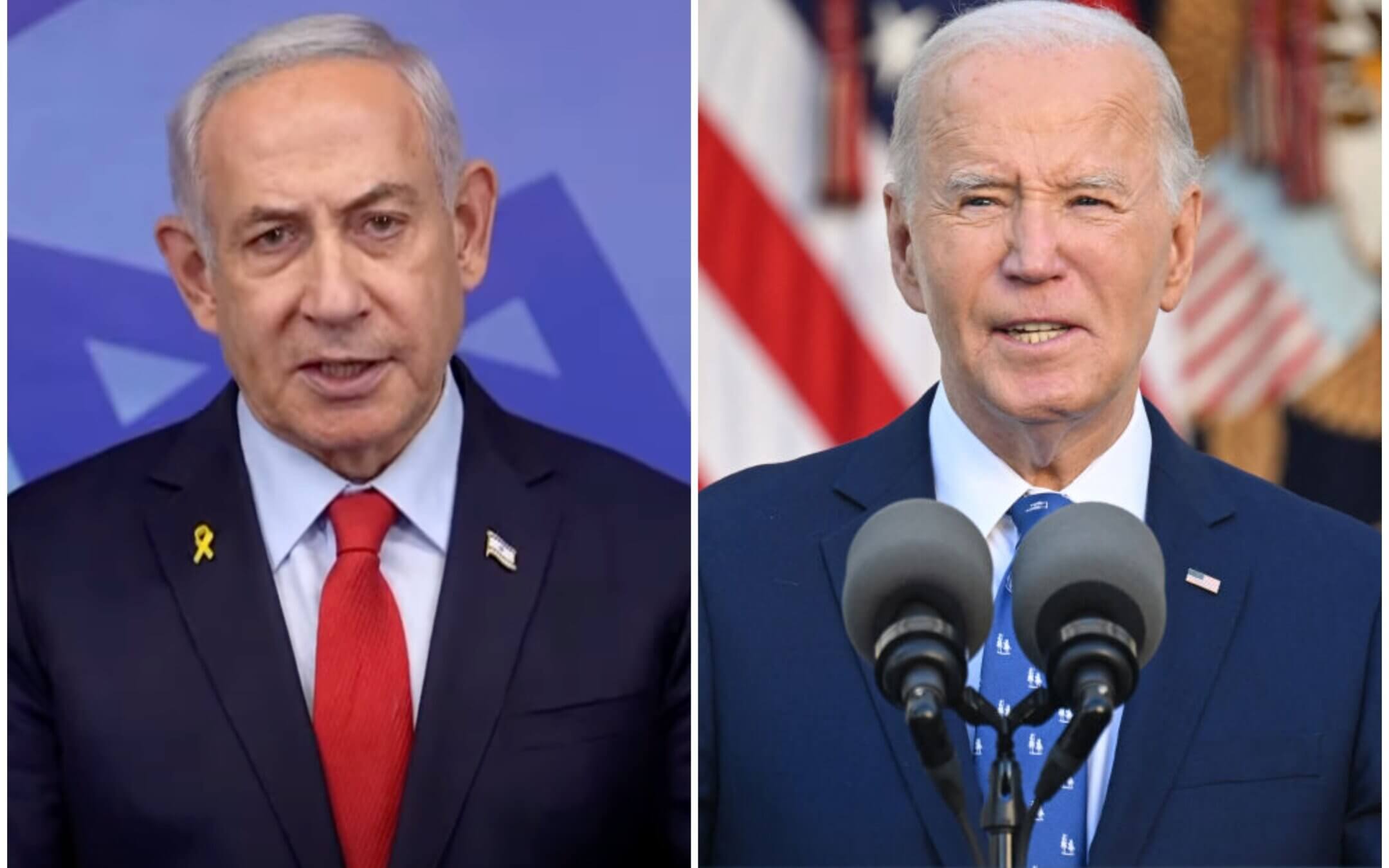Senior Biden aide celebrates Israel-Hezbollah ceasefire in call with Jewish leaders
Amos Hochstein, the U.S. envoy to the Middle East, said the truce opens door for a hostage deal in Gaza

Israeli Prime Minister Benjamin Netanyahu and President Joe Biden seperately announcing ceasefire in Lebanon on Nov. 26, 2024. Photo by GPO / SAUL LOEB/AFP via Getty Images
Amos Hochstein, President Joe Biden’s envoy to the Middle East, celebrated on Wednesday the administration’s first major diplomatic achievement in more than a year: brokering a ceasefire to end 14 months of fighting between Israel and the Lebanese Shiite militia Hezbollah.
Speaking via Zoom to members of the American Jewish community, Hochstein said that as he watched Biden leave the Oval Office Wednesday to announce the deal in a Rose Garden ceremony, “I was thinking that when was the last time the president was able to open with the words, ‘I have good news from the Middle East.’”
Hochstein has spent the last year shuttling between Washington, Israel and various Arab capitals, trying to mediate between hostile neighbors and stop the conflict from widening into a full-blown regional or even world war. He framed the agreement that took effect Wednesday morning local time as a victory for regional stability and detailed its enforcement mechanisms, the diminishment of Hezbollah’s military capabilities to threaten Israel, and the assurances the Jewish state was given that it would always be able to act in self defense.
He contrasted the deal with the ongoing stalemate in negotiations between Israel and Hamas to end the devastating fighting in Gaza and secure the release of the 101 hostages, including several American citizens, that remain in captivity there. Hochstein said the Hezbollah truce “opens an opportunity” for momentum on ending the war in Gaza, though many experts disagree.
Immediately after the Oct. 7 Hamas attack on Israel, Hezbollah started firing barrages of rockets into the country’s north in solidarity. Some 60,000 Israelis evacuated their homes and have been living elsewhere for many months. Israel invaded southern Lebanon on Oct. 1 of this year, after assassinating Hezbollah’s longtime leader, Hassan Nasrallah, and eliminating a number of its operatives by blowing up their pagers and walkie-talkies.
About 2,200 Lebanese were killed in the war, most of them civilians, according to local health officials, along with 52 Israelis, half soldiers and half civilians.
What it took to get a deal
The ceasefire represents a key diplomatic milestone for Biden and a diplomatic lifeline for Israeli Prime Minister Benjamin Netanyahu. It came after Israel made significant military gains in destroying Hezbollah’s leadership and arsenals, and changes in the regional landscape.
In a 20-minute briefing, moderated by Shelley Greenspan, the White House Jewish Liaison, Hochstein said people often overlook the importance of the American president’s relationships with other countries in helping support Israel. “And Joe Biden has that standing with the rest of the world,” he said, hinting that President-elect Donald Trump does not.
As an example, France’s announcement Wednesday that it will grant Netanyahu immunity from an arrest warrant issued by the International Criminal Court over the Gaza conflict was a result of the U.S. leveraging its influence to secure a critical diplomatic achievement.
And then there is Donald Trump. The President-elect, keen to maintain his ‘no new wars’ doctrine in his second term, leaned heavily on Netanyahu to de-escalate the conflict before he entered office.
Political implications for Netanyahu
For Netanyahu, the ceasefire has benefits and risks. It means Israel will no longer be fighting on two fronts, a relief after 14 months of economic and psychic strain due to the huge callup of military reservists, but it also gives hardliners in his coalition reason to challenge him even further against bowing to international pressure to end the war in Gaza.
Previous proposals for a Gaza ceasefire hinged on a gradual release of hostages and a three-phased end to the war.
Nonetheless, for proponents of an immediate hostage deal, Netanyahu proved he could overcome political pressure to go against a majority of his base. A poll conducted by Israel’s Channel 12 showed that 45% of those who support Netanyahu’s bloc were against the Hezbollah ceasefire, and 20% in favor.
Trump’s eagerness to end the war in Gaza might give Netanyahu the political cover required to navigate resistance toward compromise since Israelis in Netanyahu’s camp see Trump as a friend.
On the call, Hochstein said that Biden “wants to run to the end” to secure even a limited hostage deal and is in touch with Trump’s team to reach that goal. “It will be worth all the effort.”
















